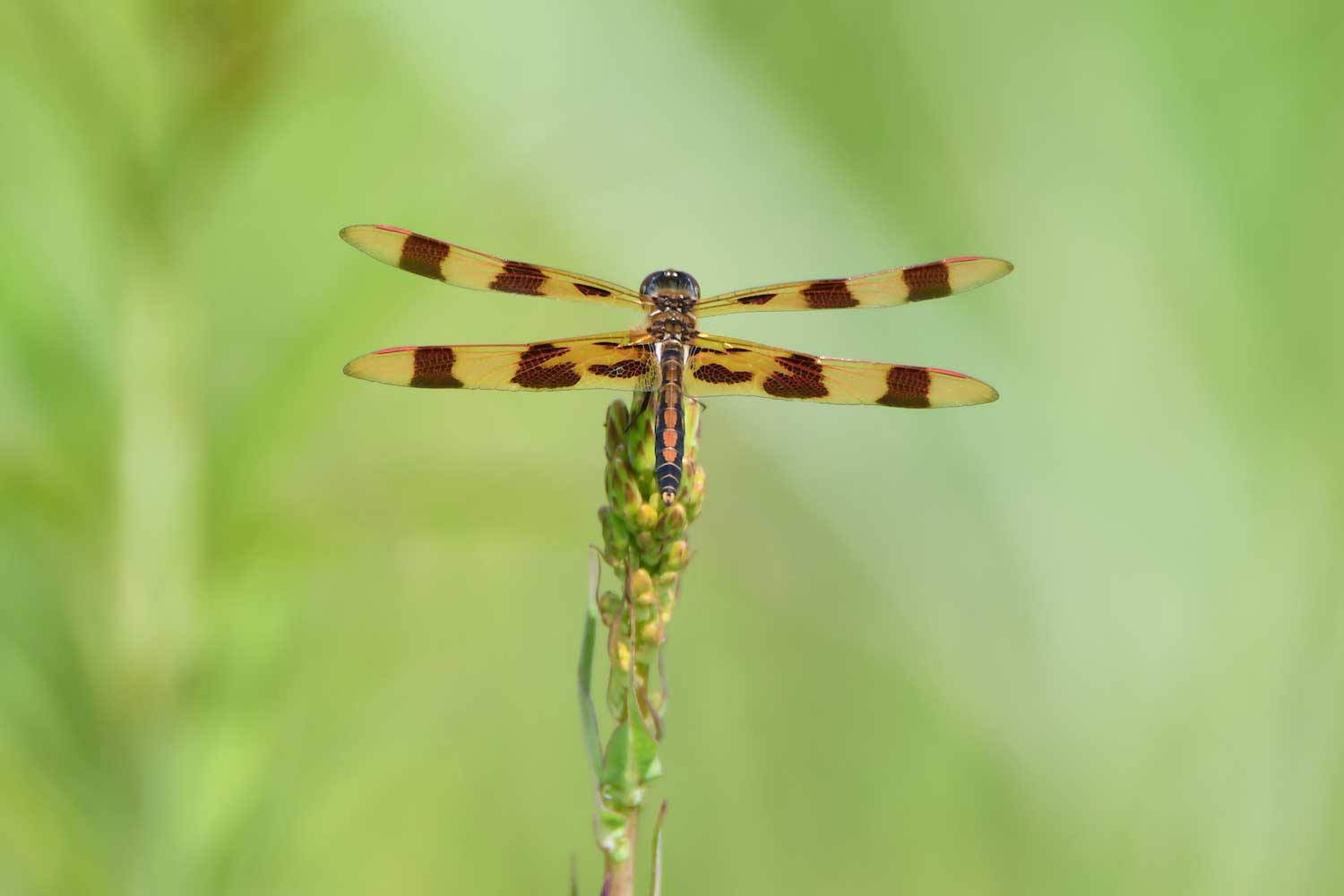Mosquitoes driving you indoors? Attract dragonflies to your yard

Nothing can ruin time spent outside on a beautiful summer day quite like having to swat away mosquitoes. You can improve your odds of enjoying your time spent in your yard by planting plants that repel mosquitoes, but another strategy would be to attract insects that will eat the mosquitoes.
Among the best contenders for insects that will patrol your yard and eat mosquitoes are dragonflies and damselflies, which can eat upwards of 100 mosquitoes a day, according to Treehugger.
So how can you attract these bugs to your yard in an attempt to control the mosquitoes? The best thing you can do to encourage dragonflies and damselflies to visit your yard is to provide a water source.
Dragonflies start their lives as nymphs, and the nymphs live in the water. They remain in the nymph stage for as long as three years, molting between six and 15 times as they grow to their full size, according to National Geographic. With their final molt, they emerge as adults with wings. The adults live only about a month. They can fly away from their watery homes, but we still often see adult dragonflies near aquatic habitats.
Because water is essential for their life cycle, having a small pond will certainly help attract dragonflies and damselflies to your yard. Bird baths and other shallow water sources aren't deep enough for dragonflies, which is why a small pond is best.
But mosquitoes, of course, also require water for breeding. However, mosquitoes most often lay their eggs in stagnant standing water, such as in gutters or children's toys. You can prevent mosquitoes from breeding in your yard by making sure you don't have any areas of standing, still water. If you have a pond or another permanent water source, you can also add tablets containing Bacillus thuringiensis israelensis, or Bti, to any water features in your yard, Treehugger advises. Bt israelensis is a larvicide that can help control the larval populations of mosquitoes, according to the U.S. Environmental Protection Agency.
Of course, not everyone can add a pond to their yard, so another way to attract dragonflies to your property is to plant plants that mimic a natural habitat and provide places for the insects to perch, according to Treehugger. Native plants are best, and diversity is key, because both those factors help mimic the natural habitats dragonflies and damselflies inhabit.
Good choices for planting including black-eyed Susan, Joe-Pye weed and swamp milkweed, according to SCARCE, an environmental awareness group based in DuPage County.
Including a variety of native plants that attract pollinating insects is also key because it will help ensure a steady supply of insects for the dragonflies to eat, according to Better Homes and Gardens. If you have a pond or another water source in your yard, make sure to plant vegetation near the water as well.
You can also try to do double duty by both planting plants that will attract dragonflies and also adding plants to your yard that will repel mosquitoes. Many strong-smelling plants will help keep mosquitoes at bay, both because the bugs don't like the smell and because they mask the smell of humans, which can attract mosquitoes, Good Housekeeping reports.
If you want to try to keep your patio or outdoor space a mosquito-free zone, try adding a few planters or pots containing plants such as catnip, basil, lavender, lemon balm, sage, rosemary, peppermint and citrosum, also called citronella or mosquito plant, Good Housekeeping suggests. Citronella is probably the most well-known mosquito-repelling plant, and you can even buy candles and other products with the scent to keep the bugs at bay, but some research shows it may be the least effective of these plants to repel mosquitoes.
Here are a few more tips from SCARCE to prevent your yard from becoming a mosquito magnet:
- Change the water in your bird bath every few days. Spray it down with a hose before adding fresh water to remove any mosquito larvae.
- Add a bat house to your yard. Bats are another well-known consumer of mosquitoes.
- If you have a pond, add fish to it, because they will eat mosquito larvae. A good species to include would be fathead minnows, which are native and known to eat mosquito larvae.
- Clean your gutters so there is nowhere for standing water to accumulate.
- If you have a rain barrel, make sure the cover fits properly so mosquitoes can't access it for breeding.
One thing you shouldn't do is add a bug zapper to your yard, SCARCE advises. These zappers may kill mosquitoes and other pesky insects, but they also kill the beneficial insects as well, including those that feast on mosquitoes.
